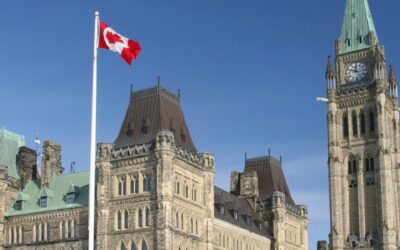VANCOUVER — Kate Harland, Research Lead of Clean Growth at the Canadian Climate Institute, made the following statement in response to the release of the CleanBC review by independent experts:
“The CleanBC review offers a clear path forward for British Columbia—and for Canada—to build a cleaner, more competitive economy while driving down emissions and improving affordability. The recommendations in the review can help B.C. ramp up clean power and electrification through a renewed approach to climate policy that makes it easier for people and businesses to adopt practical solutions.
“B.C. is not starting from scratch and has a strong policy foundation on which to build. The next step in building B.C.’s clean competitiveness can be a roadmap for B.C. as well as other provinces and territories.
“For more than a decade, B.C. has taken action to fight climate change, all while building one of the strongest economies in the country. Without smart climate policy, B.C. risks undercutting its goals of building a cleaner, more competitive economy. The CleanBC review offers a range of policy choices the government can take to create a better path ahead for people and communities across the province.”
KEY FACTS
Several specific recommendations from the CleanBC review emerge as priorities:
- The review rightfully highlights strengthening industrial carbon pricing, as a priority. Addressing oversupply of carbon credits is a necessary step to creating strong incentives for investment in low-carbon projects.
- It also recommends strengthening targets for methane reductions, a sensible approach for more low-cost reductions from a growing source of emissions.
- Recommendations to expand the low carbon fuel standard and introduce more stringent rules around renewable natural gas can improve the effectiveness and credibility of an existing policy that is already working to reduce emissions and attract investment.
- B.C. also has an enormous advantage with its clean and affordable hydro-electric grid and is taking big steps to expand its supply of low-cost renewable power. The report recommends building on this critical asset as the province electrifies more of its economy in the near future.
- Utilities and their regulator (the BC Utilities Commission) need clear policy and integrated, forward-looking energy planning that treats electricity and gas as parts of a connected system. The report outlines how this can be accomplished in a more co-ordinated manner across BC Hydro, gas utilities, and the BC Utilities Commission. Research from the Canadian Climate Institute has shown that planning for the transition away from gas heating in buildings can reduce risks of leaving utility customers on the hook for higher costs in the future.
- The panel’s recommended changes to the electric vehicle mandate are also practical and would continue to support the increase of EV model options for lower cost for more people across the province.
- Recommendations to track a broad set of real-world metrics can also help the province navigate a path for net zero by 2050.
- Giving new resources and accountabilities to the independent Climate Solutions Council could likewise improve public transparency and accountability.
RESOURCES
- Blog | Five choices that are breaking industrial carbon pricing
- Blog | B.C. has a math problem with renewable natural gas
- Report | Heat Exchange: How today’s policies will drive or delay Canada’s transition to clean, reliable heat for buildings
CONTACT
Krystal Northey
Lead, Public Affairs
Canadian Climate Institute
(226) 212-9883
About the Canadian Climate Institute
The Canadian Climate Institute is Canada’s leading climate change policy research organization. The Institute produces rigorous analysis, economic modelling, and in-depth research focused on incentivizing clean economic growth and low-carbon competitiveness, reducing emissions and accelerating Canada’s net zero energy transition, and making our economy and infrastructure more resilient to a warming climate.





